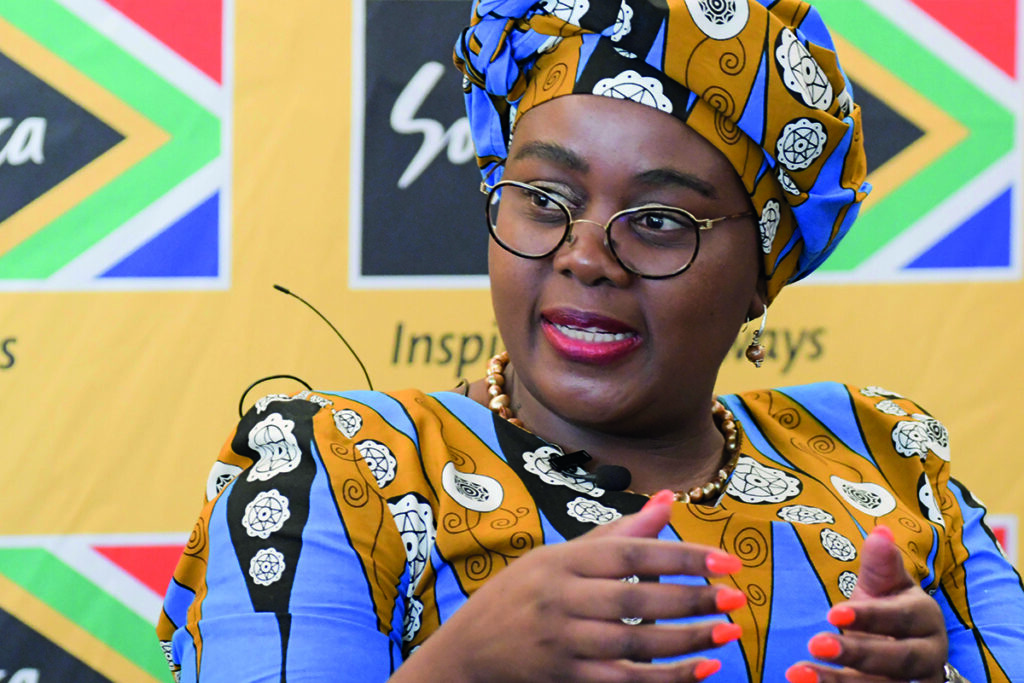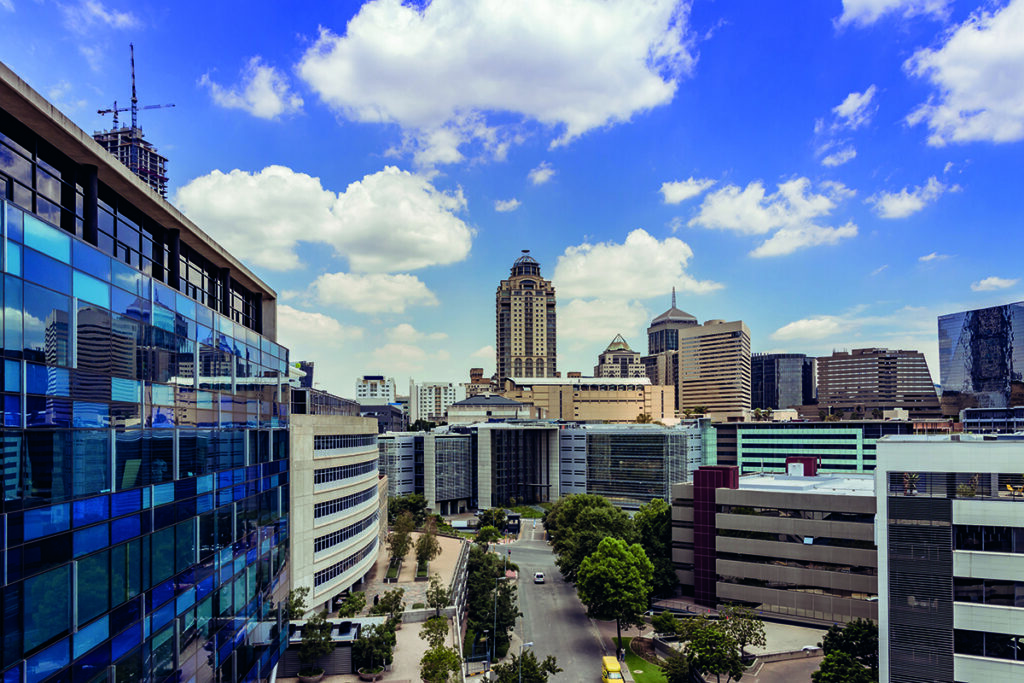Urban tourist magnets have nowhere to retreat to as sea levels rise with climate change. (Rajesh Jantilal/AFP via Getty Images)
SPONSORED
The travel and tourism industry has already suffered the most devastating setbacks since the outbreak of the Covid-19 pandemic, yet its full impact on this sector is still unknown.
The United Nations World Tourism Organisation (UNWTO) estimates that international tourist arrivals could decline by 20% to 30% in 2020. This would translate into a loss of $300-billion to $400-billion in international tourism receipts in the worst-case scenario.
Similarly, analysis by the World Travel & Tourism Council (WTTC) shows a sharp escalation in the economic loss to the world economy, up to $2.7-trillion of GDP. This will put almost 75 million jobs at risk in G20 countries alone.
It is not hard to predict that in our country, the sector’s contribution to the GDP for this year will be very low and that the sector will incur severe job losses. This is because the lockdown which we imposed to contain the spread of the virus curtailed both the supply and the demand side of the tourism market. In essence, the lockdown rendered the tourism sector totally inactive.
 Minister of Tourism Mmamoloko Kubayi-Ngubane. (Jeffrey Abrahams)
Minister of Tourism Mmamoloko Kubayi-Ngubane. (Jeffrey Abrahams)
However, we must appreciate and applaud the fact that thus far, our efforts to contain Covid-19 have resulted in the slowing of the spread of the virus. At the same time, the need to avoid the loss of jobs and the destruction of livelihoods is a top priority. Thus, there is a need to keep a delicate balance between protecting people from the Covid-19 virus and avoiding economic devastation. Accordingly, our government has adopted the Risk Adjustment Approach, which consists of a sequenced, phased-in opening up of key sectors and priority areas while intensifying the fight against Covid-19 and rebuilding our economy.
Because the tourism sector thrives on social interaction, it will take longer for businesses in the sector to return to full operation. In the meantime, we need to create mechanisms to protect the most vulnerable segments of the sector such as SMMEs, those who are self-employed, women and the youth.
 Belinda Scott, Durban’s deputy mayor and Nomusa Dube-Ncube, MEC KwaZulu-Natal Economic Development, Tourism and Environmental Affairs hand over sanitisers, masks and sanitary packs in Umlazi township on April 09, 2020 in Durban. (Darren Stewart/Gallo Images)
Belinda Scott, Durban’s deputy mayor and Nomusa Dube-Ncube, MEC KwaZulu-Natal Economic Development, Tourism and Environmental Affairs hand over sanitisers, masks and sanitary packs in Umlazi township on April 09, 2020 in Durban. (Darren Stewart/Gallo Images)
Saving the sector
The Tourism Relief Fund, which we introduced to assist small businesses in the sector, has thus far received more than 10 000 applications. This R200-million fund is a once-off assistance package capped at R50 000 per entity and it is aimed at assisting entities to cover fixed costs, operational costs, supplies and other pressure cost items.
Entities in the following categories of the tourism value chain are eligible to apply:
• Accommodation establishments: hotels, lodges, bed and breakfast establishments (B&Bs), guest houses and backpackers.
• Hospitality and related services: restaurants (not attached to hotels); conference venues (not attached to hotels), professional catering; and attractions.
• Travel and related services: tour operators; travel agents; tourist guiding; car rental companies; and coach operators.
We acknowledge that the fund is not enough. We therefore encourage businesses in the sector to apply to other relief schemes that have been made available by our government.
Government has introduced a R200-billion loan guarantee scheme in partnership with the major banks, national treasury and the South African Reserve Bank. The initial phase of this scheme is for companies with a turnover of less than R300-million a year. Since most of the tourism businesses fall within this category, we encourage them to utilise this opportunity. This will help them to reduce the burden of operational costs, such as salaries, rent and the payment of suppliers.
We have also been working in close collaboration with the department of labour and employment, labour formations and the Tourism Business Council of South Africa (TBCSA) to expedite Unemployment Insurance Fund applications for tourism businesses. So far, we have received more than 25 000 applications and we believe this will also assist in saving jobs in the sector.
 Sandton has empty streets due to the Coronavirus lockdown
Sandton has empty streets due to the Coronavirus lockdown
Global co-ordination effort
While it is important to support the sector so that it can weather the storm, there is also a need to start planning for the recovery of the sector in the post-Covid-19 period. The global nature of the pandemic means that the measures to curb the spread of Covid-19, such as travel restrictions and border closures, have been imposed worldwide. This means that any recovery planning that is not in line with a globally co-ordinated effort will be a futile exercise. Regarding global co-ordination, we have participated in conferences and engagements with global institutions such as the African Union, the G20 ministerial meeting, the UNWTO and the WTTC to look at how we can develop a global approach to the recovery of the tourism sector. The AU convened the first meeting of the Bureau of the Subcommittee on Tourism for the Specialised Technical Committee on Transport, Transcontinental and Interregional Infrastructure, Energy and Tourism (STC-TTIIET) on April 21 2020. The purpose of the meeting was to exchange ideas on a response and recovery plan for tourism in relation to the Covid-19 pandemic.
On April 14, the UNWTO convened a virtual conference on Policies for Inclusive Recovery in Global Tourism, in collaboration with the Mastercard Center for Inclusive Growth. The conference provided a platform to discuss how governments, institutions and companies can protect vulnerable populations during the Covid-19 outbreak. The meeting also discussed measures that countries can put in place to accelerate their recovery.
The G20 Presidency (Kingdom of Saudi Arabia) convened a Tourism Ministers’ Virtual Meeting on 24 April. The purpose of the meeting was to discuss the tourism sector’s response to the Covid-19 pandemic as well as to formulate a recovery plan supporting the long-term resilience of the sector. Specifically, the meeting was aimed at facilitating collaborative action to protect tourism businesses and jobs, and to support visitors throughout the outbreak. Given that the tourism sector will play a crucial role in economic recovery, the G20 Tourism Ministers Meeting provided a platform to reinforce global co-operation with other international organisations in order to mitigate the impact of the pandemic and lay the foundation to accelerate recovery.
For its part, the WTTC has proposed to G20 tourism ministers to “… fully jointly commit with the private sector to four key principles to achieve a faster recovery. This would involve including the private sector in the coordinated response, ensuring all measures put the traveller at the heart of their actions. This would include a seamless traveller journey with enhanced health security standards enabled through technology, developing joint public-private and G20-wide health protocols, as well as ongoing support packages for the tourism sector beyond lifting of lockdown and into the recovery”.
The consistent theme emerging from these global institutions is that countries should develop a globally co-ordinated approach for the recovery of the tourism sector. Additionally, countries are encouraged to commit to supporting the sector during the crisis to save businesses and jobs, developing a framework to advance sustainable tourism, investing in market intelligence systems and digital transformation, and developing a governance framework for tourism at all levels.
In the end, each country is expected to develop its own recovery plan that is informed by the prevailing conditions in that particular country. Based on the Covid-19 pandemic’s expected trajectory in South Africa, the best-case scenario is that the tourism sector’s recovery will only begin, in earnest, towards the end of this year. The first phase of the recovery will be driven by domestic tourism followed by regional tourism. International tourism will only start coming into operation next year.
The Risk Adjusted Approach gives us a framework within which we can carve out a path towards recovery for the tourism sector in South Africa. Working in collaboration with the private sector, we are developing a recovery plan that will form a launch-pad for the tourism recovery efforts in South Africa. We are confident that the sector will overcome the current challenges and emerge even stronger in the post-Covid-19 period. — Minister of Tourism Mmamoloko Kubayi-Ngubane
This article can be read on: https://bit.ly/3gjBF4H